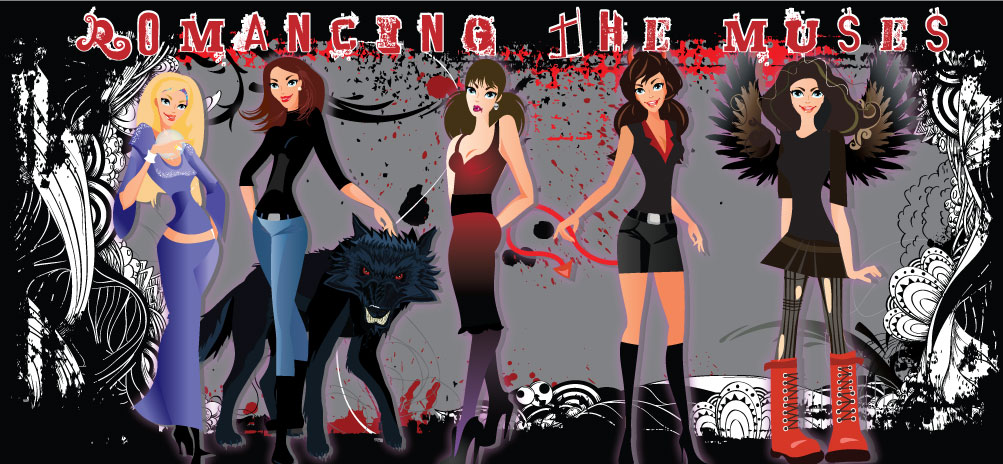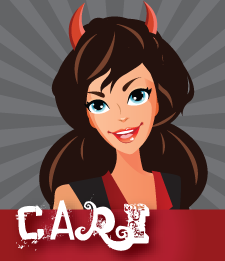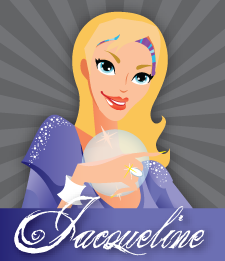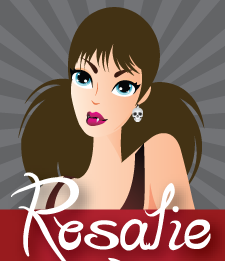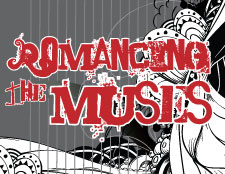This is it, folks. My last post of November. NaNoWriMo’s winding to a close, local radio stations have begun their solid playlist of nothing but Christmas music, Black Friday is now 2011 history, and many of us in the western hemisphere have exchanged our shorts and tank tops for sweaters and snow-boots.
That’s right. We are one month – one freakin’ month – away from kissing a whole year goodbye. Is it just me, or didn’t we just yesterday start proclaiming Happy New Years and checking off those goals we wanted accomplished by the end of 2011? We have less than a month until Christmas arrives, and if your family is anything like mine, that means time in December to do anything writing-productive will be preciously sparse.
One month. How close are you to your yearly goals? Did you meet them, exceed them, or were they just a hair out of reach? Most people will make idle goals they really intend to see through—lose weight, get a handle on their spending habits, and so forth. I’ve done every cliché resolution one can muster and have decided, rather than disappoint myself, to apply my resolutions to things I know I can and should accomplish if I just keep on keeping on.
So check your watches. Mark your calendar. If there remain things you needed to accomplish in 2011, the clock is ticking. 2012 and a whole new set of goals will be here before any of us can blink.
Monday, November 28, 2011
Tuesday, November 22, 2011
NaNo ... veteran?
I've just stopped long enough to read the last few posts about
NaNo - clearly I've been too involved in NaNo to stop and
read much of anything for the last oh, 22 days.
I guess I'm a NaNo veteran because I've been doing it since
2008. Not as long as some out there have been, but long
enough to know just what the month of November means to
a writer involved. My first year I was smokin' ! Having enrolled
late, somewhere around the 9th of the month and finishing early.
Obviously my 'day job' at that point didn't take up a lot of my
time. lol The book I wrote that first year was actually published
after many months of fixing it. The next few
years weren't as fast paced as the first, but I have still managed
to slide across the finish line with no recollection of what day or
time it was.
This year I've been pushing it to the limit trying to get it done
while working full time and completing a month long book tour.
It's been exhausting, but still invigorating to do. I reached
40k by the half way mark so I could coast for the last half, knowing
my motivation and energy would dwindle for the home stretch.
I have a friend that signed on this year and she's been struggling
quite a bit. She's been too focused on that big 5-0 at the end.
I told her my secret to getting there without losing all sanity and
from the last few posts on here, I think I'll share it with everyone
at RtM too!
Don't look back. That's the main thing I do to cross that finish
line before December 1st. I write, with minimal corrections - only
those newly created typo words get fixed as I go (what can I say
they flash at me like beacons). Each day before I pick up where
I left off, I take ten minutes (no more) and read what I blundered
onto the page the day before, mostly to pick up the same flow I
had going on ... then I just write. Corrections can be done in
December! Little plot oops's can be fixed in December! I've had
to scrap entire chapters in the following months because my brain
and characters were all over the place.
I also carry a notebook with me everywhere when I'm not writing -
yes I can be found hiding in the back room at work scribbling like
a mad scientist in a notebook - if your plot is rolling and your characters
are willing to run for you, then write it down! Guaranteed if you have
that 'great idea' for the story when your nowhere near the computer, it
will vanish like free chocolate if you don't jot down enough to bring
the scene back to you. Somedays I'd never get any word count posted
 if it wasn't for translating that scribbling into scenes.
if it wasn't for translating that scribbling into scenes.
Last thing I do - I don't watch that word count thingy! I set a goal -
write a chapter a day, two chapters, 500 words or 1000 words...
set your own goal and plod ahead towards your goal. Before you
know it you'll take a peak at that nifty little graph in your NaNo stats
and see that your doing just fine.
In my eyes, anyone that signs up and attempts to complete this thirty
day marathon .. is a winner!
NaNo - clearly I've been too involved in NaNo to stop and
read much of anything for the last oh, 22 days.
I guess I'm a NaNo veteran because I've been doing it since
2008. Not as long as some out there have been, but long
enough to know just what the month of November means to
a writer involved. My first year I was smokin' ! Having enrolled
late, somewhere around the 9th of the month and finishing early.
Obviously my 'day job' at that point didn't take up a lot of my
time. lol The book I wrote that first year was actually published
after many months of fixing it. The next few
years weren't as fast paced as the first, but I have still managed
to slide across the finish line with no recollection of what day or
time it was.
This year I've been pushing it to the limit trying to get it done
while working full time and completing a month long book tour.
It's been exhausting, but still invigorating to do. I reached
40k by the half way mark so I could coast for the last half, knowing
my motivation and energy would dwindle for the home stretch.
I have a friend that signed on this year and she's been struggling
quite a bit. She's been too focused on that big 5-0 at the end.
I told her my secret to getting there without losing all sanity and
from the last few posts on here, I think I'll share it with everyone
at RtM too!
Don't look back. That's the main thing I do to cross that finish
line before December 1st. I write, with minimal corrections - only
those newly created typo words get fixed as I go (what can I say
they flash at me like beacons). Each day before I pick up where
I left off, I take ten minutes (no more) and read what I blundered
onto the page the day before, mostly to pick up the same flow I
had going on ... then I just write. Corrections can be done in
December! Little plot oops's can be fixed in December! I've had
to scrap entire chapters in the following months because my brain
and characters were all over the place.
I also carry a notebook with me everywhere when I'm not writing -
yes I can be found hiding in the back room at work scribbling like
a mad scientist in a notebook - if your plot is rolling and your characters
are willing to run for you, then write it down! Guaranteed if you have
that 'great idea' for the story when your nowhere near the computer, it
will vanish like free chocolate if you don't jot down enough to bring
the scene back to you. Somedays I'd never get any word count posted
 if it wasn't for translating that scribbling into scenes.
if it wasn't for translating that scribbling into scenes.Last thing I do - I don't watch that word count thingy! I set a goal -
write a chapter a day, two chapters, 500 words or 1000 words...
set your own goal and plod ahead towards your goal. Before you
know it you'll take a peak at that nifty little graph in your NaNo stats
and see that your doing just fine.
In my eyes, anyone that signs up and attempts to complete this thirty
day marathon .. is a winner!
Monday, November 21, 2011
The Importance of a Creative Nap
For the first time in what feels like longer than it actually was, I did nothing all weekend.
Well, that’s not entirely true. I did put “THE END” on my NaNo project, which ended up 15k more than I planned, but still 10k short of the actual NaNo goal. At any rate, I’m calling it a win. It was my novice venture into the national writing month, and I consider it an overall success.
As well as draining beyond belief. Can you say holy cow? I’m ready to sleep until 2016. I'm sure other NaNoers agree...whether or not you've crossed the finish line. I definitely have new-found respect for those who make this an annual event, as I hope to do...though I must say, the thought of going through it again right now? Yeah, I'll need a year before it sounds feasible.
Which brings me to my point. Writers, if you need a break? If you've been working day in and out for the past however long? If you've forgotten what the sun looks like? Push your chair back from the computer and go on a walk. See a movie. Take a nap. Do something for you that you don't consider work.
For as much as I harp about constantly getting the words out, it is important to treasure your downtime. It’s been forever, as I lamented to the hubs over the weekend, since I read a book just to read it. I’m always writing or editing; reading for the sake of entertainment and relaxation does not come easy anymore.
During this holiday week, to all who celebrate, make sure to take some time for yourself. If you’re anything like me, you’ll need your rest if you want to meet your goals.
Well, that’s not entirely true. I did put “THE END” on my NaNo project, which ended up 15k more than I planned, but still 10k short of the actual NaNo goal. At any rate, I’m calling it a win. It was my novice venture into the national writing month, and I consider it an overall success.
As well as draining beyond belief. Can you say holy cow? I’m ready to sleep until 2016. I'm sure other NaNoers agree...whether or not you've crossed the finish line. I definitely have new-found respect for those who make this an annual event, as I hope to do...though I must say, the thought of going through it again right now? Yeah, I'll need a year before it sounds feasible.
Which brings me to my point. Writers, if you need a break? If you've been working day in and out for the past however long? If you've forgotten what the sun looks like? Push your chair back from the computer and go on a walk. See a movie. Take a nap. Do something for you that you don't consider work.
For as much as I harp about constantly getting the words out, it is important to treasure your downtime. It’s been forever, as I lamented to the hubs over the weekend, since I read a book just to read it. I’m always writing or editing; reading for the sake of entertainment and relaxation does not come easy anymore.
During this holiday week, to all who celebrate, make sure to take some time for yourself. If you’re anything like me, you’ll need your rest if you want to meet your goals.
Monday, November 14, 2011
NaNo Fatigue
This is my first year participating in NaNoWriMo, and I gotta say, I was steaming along quite nicely until I remembered breathing is essential in any race, and I’ve been holding mine far too long.
This is the middle of the month. As of tomorrow, you better be at least ½ through your NaNo goal to be considered on track. For those aiming at 50k, that would indicate your current word count should be around 25k, which mine is. And unlike the standard NaNo goal, I’m working specifically on a submission call for one of my publishers, and I didn’t intend for my project to go too far past 25k. I’m looking now at maybe 10-15k more before I can stick a fork in it, and I can tell you, I desperately want this project finished if only to give myself a moment to catch my breath.
For those of you career NaNo writers out there, how do you do this? What techniques do you implement whenever you’re feeling draggy or have reached the incline? I feel like I’m on the business end of a shotgun, walking a mile-long stretch of rising hill with no plateau in sight. Granted, I am pleased with what I’ve written thus far, even if it will need ample revision in the coming weeks before it’s ready to be submitted. I just need to keep the momentum going.
Is the best advice just to keep moving even if your creative muscles are dying for rest? No pain, no gain? Please share your wisdom. I know I won’t be the only one listening.
This is the middle of the month. As of tomorrow, you better be at least ½ through your NaNo goal to be considered on track. For those aiming at 50k, that would indicate your current word count should be around 25k, which mine is. And unlike the standard NaNo goal, I’m working specifically on a submission call for one of my publishers, and I didn’t intend for my project to go too far past 25k. I’m looking now at maybe 10-15k more before I can stick a fork in it, and I can tell you, I desperately want this project finished if only to give myself a moment to catch my breath.
For those of you career NaNo writers out there, how do you do this? What techniques do you implement whenever you’re feeling draggy or have reached the incline? I feel like I’m on the business end of a shotgun, walking a mile-long stretch of rising hill with no plateau in sight. Granted, I am pleased with what I’ve written thus far, even if it will need ample revision in the coming weeks before it’s ready to be submitted. I just need to keep the momentum going.
Is the best advice just to keep moving even if your creative muscles are dying for rest? No pain, no gain? Please share your wisdom. I know I won’t be the only one listening.
Monday, November 7, 2011
The Enemy Of My Enemy Is My Editor
At one point or another, we all receive a particularly heinous markup. For many of us, this markup is the first of many. For some of us, it’s a wake-up call. This is a manuscript you submitted returned to you with so much color you can’t even tell what part of the book is yours anymore. If you’re anything like me, some of the first thoughts that rush through your head are, “Oh. My. God,” “Why did they even contract this?” and “I am a complete failure.”
We’ve all had that markup. Some of us have had it more than once. And if you haven’t had that markup, you’re either a fantastic, flawless author who defies error, or you haven’t yet had a good editor. The point being this—a good author will go, “I need to fix this,” and get to work, all the while trying to pick up on those things that could be incorporated into a future project to avoid such problems. A bad author will make the changes without trying to pick up on how these things could be avoided. Some authors, like myself, might be mortified the MS had such glaringly obvious and easily fixable mistakes. Even if your editor prevents you from embarrassing yourself in front of readers, the sensation of receiving a markup noted with obvious flaws leaves one feeling as they might if someone caught them with their pants down in public. It doesn’t matter that most everyone didn’t see you; the knowledge that someone did is enough.
Some people will, as I said, be mortified. Others will simply be angry.
And why shouldn’t we be angry? Writing is different from most other professions. It’s personal, it’s hard, it’s us on a page. To see so much of what you poured yourself into being marked as flawed, corrected, or demanded changed can be one nasty wake-up call. If your editor is the sort to leave comments, you might even start assigning a certain voice or tone to how you imagine they intended it to come across. How you imagine they gleefully cherry-picked your words and intentionally took things one way instead of another just to make you look foolish. After all, this person came through your manuscript like a hurricane, finding words you missed, seeing things you feel you should have seen, and acting all superior-like as if the book is theirs and not yours. Why not make them the bad guy? How would they like it if someone trashed all over their work?
The simple answer is this: editors have a job to do. Their job is not to make you feel bad, ashamed, embarrassed, angry, defensive or any combination thereof. Their job is to ensure they are the last person between you and your readers who sees the manuscript with its warts. They are there to help, not hurt.
Now, does this mean there are no bad editors? Of course not. Some editors will look through a sorry manuscript and change nothing but a comma here or there. Does this mean there are no vindictive editors? Of course not. All this means is when you do receive a manuscript that is marked from start to finish with corrections and comments, give your editor the benefit of a doubt. Look at what they say, and try to read it with some degree of neutrality. Unless they come out and say, “This book is a piece of fucking shit and you couldn’t write your way out of a burning paper sack”, they probably don’t mean the things they say in the tone you ascribe them. If anything, that tone you hear is more likely the way you feel about them…or the work itself. At the very least, don’t jump to conclusions. Just take a deep breath and push onward, one step at a time. And if all else fails, contact someone. You and your editor are on the same side, and you have the same endgame. You want the book to be its best.
At the end of the day, communication is key. You just have to decide what sort of author you want to be: the kind to immediately become defensive, or the sort to look through the work while taking a hard look at yourself at the same time. A thorough markup, unless it is plainly obvious, just means the editor cares about the book, cares about the author, can cares about their work. It means they did their job.
We’ve all had that markup. Some of us have had it more than once. And if you haven’t had that markup, you’re either a fantastic, flawless author who defies error, or you haven’t yet had a good editor. The point being this—a good author will go, “I need to fix this,” and get to work, all the while trying to pick up on those things that could be incorporated into a future project to avoid such problems. A bad author will make the changes without trying to pick up on how these things could be avoided. Some authors, like myself, might be mortified the MS had such glaringly obvious and easily fixable mistakes. Even if your editor prevents you from embarrassing yourself in front of readers, the sensation of receiving a markup noted with obvious flaws leaves one feeling as they might if someone caught them with their pants down in public. It doesn’t matter that most everyone didn’t see you; the knowledge that someone did is enough.
Some people will, as I said, be mortified. Others will simply be angry.
And why shouldn’t we be angry? Writing is different from most other professions. It’s personal, it’s hard, it’s us on a page. To see so much of what you poured yourself into being marked as flawed, corrected, or demanded changed can be one nasty wake-up call. If your editor is the sort to leave comments, you might even start assigning a certain voice or tone to how you imagine they intended it to come across. How you imagine they gleefully cherry-picked your words and intentionally took things one way instead of another just to make you look foolish. After all, this person came through your manuscript like a hurricane, finding words you missed, seeing things you feel you should have seen, and acting all superior-like as if the book is theirs and not yours. Why not make them the bad guy? How would they like it if someone trashed all over their work?
The simple answer is this: editors have a job to do. Their job is not to make you feel bad, ashamed, embarrassed, angry, defensive or any combination thereof. Their job is to ensure they are the last person between you and your readers who sees the manuscript with its warts. They are there to help, not hurt.
Now, does this mean there are no bad editors? Of course not. Some editors will look through a sorry manuscript and change nothing but a comma here or there. Does this mean there are no vindictive editors? Of course not. All this means is when you do receive a manuscript that is marked from start to finish with corrections and comments, give your editor the benefit of a doubt. Look at what they say, and try to read it with some degree of neutrality. Unless they come out and say, “This book is a piece of fucking shit and you couldn’t write your way out of a burning paper sack”, they probably don’t mean the things they say in the tone you ascribe them. If anything, that tone you hear is more likely the way you feel about them…or the work itself. At the very least, don’t jump to conclusions. Just take a deep breath and push onward, one step at a time. And if all else fails, contact someone. You and your editor are on the same side, and you have the same endgame. You want the book to be its best.
At the end of the day, communication is key. You just have to decide what sort of author you want to be: the kind to immediately become defensive, or the sort to look through the work while taking a hard look at yourself at the same time. A thorough markup, unless it is plainly obvious, just means the editor cares about the book, cares about the author, can cares about their work. It means they did their job.
Tuesday, November 1, 2011
I'll take some editing ... please...
Recently I did something that I was probably crazy to do -
my time is so limited on a normal basis that when I pondered
this idea I left out 'sleep time' on the list of calculations.
But I did it and as soon as I recoup from too many late
nights and not enough sleep I may still do the happy dance.
What did I do?
I took some previously published works and put them together
and brought them back out through Amazon. Doesn't sound
complicated I know, but trust me I have a new found respect
for what our publishers do for us as writers.
There were hitches along the way - I didn't read html (required for some
formatting) and I'm not a cover artist - not to mention I am in no way shape or form an
editor. In fact I cherish editors for taking my ramblings and
honing in on the good parts and weeding out the stuff that shouldn't
be there.
The result of my hard work was this : Two books. One with two related
novellas (previously published) and a third related story added to make
it a complete mini-serious under one cover. The second book with
a popular (previously published) story and then a second story of
related topic but not connected.
I hired an editor for the two new stories, deciding that the other three
had already undergone several rounds of edits, line edits and copy edits -
and surely there would be no more editing required after all of that, after all
in reviews no one had ever mentioned a problem with it while they were
on the book shelf. As I said before I am no editor and while I can spot the
obvious issues all the little rules still escape my attention. I did re-read my
own stories and if I changed anything it wasn't something that would affect
it as far as editing goes.
So after four months of taking on this extra brilliant idea, I heaved a huge sigh
of relief when the second one came out a month after the first. Then I moved onto
a month long tour for both to "get them out there".
Not all things are going as well as I'd hoped...
According to reviews, the stories are loved, plots are original and
intriguing, characters are rooted for ... but editing falls way below the
standard. I was shocked and needless to say a little miffed by this.
I trust the reviewers would know good or bad editing, as they read
numerous books and would see when editing falls short.
Where do I go from here? Is what I've been wondering for the last
few weeks. If it were my car or any other product you can bet your
last dollar that I'd be demanding it be done properly - but how do
you go about demanding your words be fixed right this time? Was it the
first editors that made the error or the service I paid quite a piece of
cash for? I haven't determined the answer to that one yet and a part of
me doesn't want to know. I had three people, including myself read
these works in their completed form prior to releasing them - so are we
just blind or are the reviewers extremely picky? Again, I don't know.
Do I write a huge disclaimer stating 'editing may or may not be present' or
just chalk it up to a valuable lesson and carry on from there? As writers /
authors we are trusted that our works are 'original' and in no where 'borrowed'
from others ... so shouldn't we be able to trust the editing that it is complete
and done properly? I would like to think so, but again maybe I'm just
reaching too high.
This won't deter me from doing this again in the future, if the opportunity
arises - I will however have to find a way to ensure the editing has been done
... well, I'll work on that issue when it comes around again.

For now, I am just going to focus on the crazy tour schedule, the three
contracts I signed, NaNoWriMo, polishing my two WIPS, my work
schedule and of course my family ... maybe sleep somewhere in all of that too.
*pats self on shoulder for not turning this into a rant*
:)
my time is so limited on a normal basis that when I pondered
this idea I left out 'sleep time' on the list of calculations.
But I did it and as soon as I recoup from too many late
nights and not enough sleep I may still do the happy dance.
What did I do?
I took some previously published works and put them together
and brought them back out through Amazon. Doesn't sound
complicated I know, but trust me I have a new found respect
for what our publishers do for us as writers.
There were hitches along the way - I didn't read html (required for some
formatting) and I'm not a cover artist - not to mention I am in no way shape or form an
editor. In fact I cherish editors for taking my ramblings and
honing in on the good parts and weeding out the stuff that shouldn't
be there.
The result of my hard work was this : Two books. One with two related
novellas (previously published) and a third related story added to make
it a complete mini-serious under one cover. The second book with
a popular (previously published) story and then a second story of
related topic but not connected.
I hired an editor for the two new stories, deciding that the other three
had already undergone several rounds of edits, line edits and copy edits -
and surely there would be no more editing required after all of that, after all
in reviews no one had ever mentioned a problem with it while they were
on the book shelf. As I said before I am no editor and while I can spot the
obvious issues all the little rules still escape my attention. I did re-read my
own stories and if I changed anything it wasn't something that would affect
it as far as editing goes.
So after four months of taking on this extra brilliant idea, I heaved a huge sigh
of relief when the second one came out a month after the first. Then I moved onto
a month long tour for both to "get them out there".
Not all things are going as well as I'd hoped...
According to reviews, the stories are loved, plots are original and
intriguing, characters are rooted for ... but editing falls way below the
standard. I was shocked and needless to say a little miffed by this.
I trust the reviewers would know good or bad editing, as they read
numerous books and would see when editing falls short.
Where do I go from here? Is what I've been wondering for the last
few weeks. If it were my car or any other product you can bet your
last dollar that I'd be demanding it be done properly - but how do
you go about demanding your words be fixed right this time? Was it the
first editors that made the error or the service I paid quite a piece of
cash for? I haven't determined the answer to that one yet and a part of
me doesn't want to know. I had three people, including myself read
these works in their completed form prior to releasing them - so are we
just blind or are the reviewers extremely picky? Again, I don't know.
Do I write a huge disclaimer stating 'editing may or may not be present' or
just chalk it up to a valuable lesson and carry on from there? As writers /
authors we are trusted that our works are 'original' and in no where 'borrowed'
from others ... so shouldn't we be able to trust the editing that it is complete
and done properly? I would like to think so, but again maybe I'm just
reaching too high.
This won't deter me from doing this again in the future, if the opportunity
arises - I will however have to find a way to ensure the editing has been done
... well, I'll work on that issue when it comes around again.

For now, I am just going to focus on the crazy tour schedule, the three
contracts I signed, NaNoWriMo, polishing my two WIPS, my work
schedule and of course my family ... maybe sleep somewhere in all of that too.
*pats self on shoulder for not turning this into a rant*
:)
Subscribe to:
Comments (Atom)
